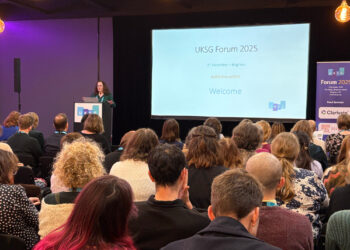 Editor’s Note: This post is a collaborative effort from Alice Meadows and Karin Wulf.
Editor’s Note: This post is a collaborative effort from Alice Meadows and Karin Wulf.
Earlier this year we wrote about the “Seven Things Every Researcher Should Know about Scholarly Publishing”, one of several recent posts seeking to improve understanding of scholarly communications among all stakeholders. These included Charlie Rapple’s post on “Three Things Scholarly Publishers Should Know about Researchers” and an Ask the Chefs forum focused on misconceptions about scholarly publishing.
The start of a new academic year in the northern hemisphere seemed like a good time for us to return to this theme, but from the opposite perspective as our original post, asking this time what scholarly publishers should know about the researchers they serve. We’ve highlighted the same seven themes: ecosystem, scholarly hygiene, business models, peer review, metrics, tools, and licenses and copyright. It was interesting to note which of them smoothly translate from the perspective of researchers versus publishers and vice versa. Mostly we found that sticking with the same themes helped to highlight connections and commonalities.
Many who work in scholarly publishing have little or no research experience themselves; even fewer do so in the field in which they publish. In an Ask the Chefs forum debating the value of research experience for publishers by asking whether publishers benefit from an advanced degree, views on the topic were mixed. Publishing is its own business, requiring a specific set of skills and knowledge, as are other fields in scholarly communication, most significantly libraries. So, while an advanced degree in the discipline you’re publishing in can be helpful in some ways, it may not be necessary, and is often not as important as other types of experience. However, just as researchers need an understanding of how scholarly publishing works, it is also essential that scholarly publishers understand researchers and their research – what they do, and when, why and how they do it.
1. Ecosystem. Understanding the ecosystem in which scholarly research is produced and then published is critical for anyone working in scholarly publishing. The context in which research questions are generated, pursued, investigated, and then written for publication is as important for publishers to understand – at a granular level – as the material itself. And, although there are some similarities across all disciplines, there are also differences that publishers need to recognize. In research as in so much of life there really is no “one size fits all”. For example, while journal articles are the preferred publication format for most scientific disciplines, books are more significant in the humanities; not to mention other types of outputs – from performances to datasets – each with its own process and requirements.
For most disciplines, though, by the time a research work arrives at the publisher’s front door it has already lived a full life, typically including contact with and feedback from funders, colleagues, and students, as well as interaction with library resources (though not necessarily with librarians themselves). These interactions with other stakeholders in the scholarly communications ecosystem are every bit as important to researchers as their interactions with their publisher, if not more so – something that publishers don’t always recognize. In addition, in the lifecycle of research, by the time their work is submitted to a publisher, it is likely that a researcher has also presented multiple iterations at conferences, large or small, workshops, and other meetings. The conference calendar for disciplines and fields is key, therefore, not only to understanding the field but also the work of scholars within it. Scholars know that timely publication of their research is critical – it may make the difference between getting a job/promotion/tenure or not — and publishers need to understand these calendars, too, and act accordingly. That includes ensuring that time spent in review or in production is communicated fairly and regularly to the author(s).
2. Scholarly Hygiene. Publishers play just as important a role as researchers in maintaining the highest standards of scholarly hygiene – and researchers look to publishers for information and support on this, for example, in terms of production quality, and guidance on ethical issues. Arguably, publishers don’t always deliver, with cost-cutting, for example, increasingly affecting the level of review, copy-editing and proofreading provided. And, while many publishers support organizations such as COPE, they don’t always ensure that their editors – never mind their authors – are aware of the advice on offer from them.
In their scramble to publish “the definitive results of latest research,” some publishers show a lack of understanding of research as an iterative process, often taking place over years or even decades. Likewise, the labeling of retractions as bad, and the reluctance – not just on the part of publishers, but of other stakeholders – to publish negative results, are other examples of a lack of understanding of how research works. Publishers could, and arguably should, play a stronger role in both supporting a strong and rigorous approach to research, and improving public understanding of how that process works.
3. Business Models. Mostly AKA open access (OA), and although some researchers care passionately about OA, the majority almost certainly do not. Most scholars simply want to publish their work in the best possible outlet and the most appropriate format – and for the process to be as simple as possible. Sure, they want it to reach a wide audience, but they also want that to be the right audience, irrespective of business model. The challenge for researchers comes when their funder or institution requires them to make their work publicly available. Hybrid journals have partially solved this issue but, as more OA mandates come into force, as seems likely, publishers need to continue to address this challenge.
Whatever the business model, making it easy for authors to submit, review, approve, and if applicable pay for their publication is absolutely critical and something to which all publishers must be committed.
4. Peer Review. Despite a lot of brouhaha, peer review is alive and kicking – and still absolutely central to the research process. Most publishers acknowledge this, at least implicitly, but may not appreciate that their own reviewers are not only spending a lot of time reviewing publications but also conference abstracts, hiring, promotion and tenure committees, grant applications, and more. Most researchers do this because it is an essential way of staying connected to and in conversation with the latest work in their field. However, finding ways to more appropriately recognize peer reviewing is likely to become more of an issue in future – as reflected in the theme of this year’s Peer Review Week, which is “Recognition for Review”. It’s something that, as one of the key beneficiaries of the process, publishers could and should play a leading role in addressing.
Many researchers, especially early career researchers and those in emerging economies, also need training on the peer review process – all the more so with the development of open peer review. Again, this is something in which publishers, and particularly editors, can play a strong role.
5. Metrics. Like publishers, researchers both love and loathe metrics. Like publishers, they are caught between an awareness that metrics are quite limited for evaluating the worth of scholarship, and the regular use of metrics as a shorthand for exactly that form of evaluation. What researchers generally do not know, and need publishers to be clearer about, is which metrics are valuable, how, why, and when. And not just for evaluating publications, but also by extension for job, tenure and promotion, funding applications, and more. In all of these there are different sorts of pressures to use — or not — metrics. These pressures weigh heavily on publishers, but they may weigh heaviest on researchers.
6. Tools. Publishers love to develop new tools “to help researchers”, but how well do they really understand researchers’ needs and how good are they at developing services that genuinely meet them? It’s certainly not always clear to the researchers what the value of many of these tools and services is, nor how they can tell the difference between similar tools developed by competing organizations. To make matters worse, there are so many tools and services for researchers out there now that librarians, who in the past would have been able to provide this kind of advice, often can’t keep up with the pace of change either.
There’s always going to be a market for outstanding products that really do make researchers’ lives easier, and publishers (and others!) would be doing everyone a favor by focusing their efforts on developing fewer, but better and/ or more targeted ones.
7. Licenses and copyright. The single most important thing for publishers to recognize is that researchers have little interest in, and even less understanding of, copyright and licenses, which is a challenge, since they are getting increasingly complex. Finding ways to explain the key elements and simplify the process during publication is very important. Again, librarians can and often do play an important role here, but publishers must too. As with business models, making it easy for authors to find, understand, and sign an appropriate license is critical. We are all guilty of mindlessly clicking the “Accept” button on all sorts of online licenses in our day-to-day lives, but doing so during the publication process may have serious implications. Researchers need to understand what they are signing and why, what the implications are, whether it will enable them to comply with any institutional, funding, or other requirements, and more. And publishers’ websites aren’t always as transparent as they might be.
So, what have we learned from looking at these seven things from the other side?
Publishers and publishing certainly play a significant role in the work of researchers, but to quote Barbara Myers Ford, publishing also needs “to recognize it is no longer the center of the information universe. This may mean “changing our mindsets from being the lead to a supporting role in a larger production.” Publishers can – and should – do more to support and educate researchers about how and why the publication process works the way it does. But they can’t do this successfully without a better understanding of how and why the research process works the way it does.
Some organizations – and individuals – are better at this than others. Arguably, it’s easier for a discipline-focused press than a multidisciplinary one, as the whole organization can develop a deep understanding of how that field works. Similarly, publishers working across different types of publication (journals, datasets, monographs, texts, etc.) may have a broader understanding of the research process – at least from a publishing perspective. However, as a result of consolidation in the industry and a move away from monograph publishing on the part of many companies, there are fewer of both types of organization around than there were. Publishers need to work harder than ever to ensure that their staff develop a deep and broad understanding, not just of the publishing process in their discipline(s) but also how that fits into the whole research lifecycle.
Discussion
18 Thoughts on "Seven Things Every Scholarly Publisher Should Know about Researchers"
Let me stress the importance of production values for some disciplines. I edited a book on self-publishing and libraries where the author of one contribution was very disappointed with his last commercially published book because the typeface was too small and because he couldn’t add the photographs that he felt were important to support his research. He understood that cost was a consideration for the publisher but decided to self publish his next book so that he had control over the process including choosing the typeface and adding as many graphics as he wished since the item would appear digitally.
In the same way, I was not pleased when the copy editor of an article changed my text from correct to incorrect in the use of the term “de jure” versus “de facto.” I never had a chance to review this “correction” that made me look stupid to a careful reader of the article, of which there were probably not very many.
Agreed, production is critically important to authors–and to their readers! Communication helps. A publisher needs to be clear about what the production timeline is and what it involves. Some are more upfront than others about how authors can and should expect to work with copyediting, for example.
Some pretty big scholarly publishers don’t act like production values are important. See, for example, Springer Verlag switching over almost completely to poorly bound print-on-demand books.
I’ve had a similar experience in the past few weeks. A paper that had been carefully copy edited in Word by publisher developed a few errors when reproduced as a PDF. I’d never used the PDF editing tools, nor the web uploading interface before, and the instructions were less than helpful. I clicked the wrong button on the web form, and it locked the incorrect end PDF. I sent two emails to the publisher with the corrected PDF but never received a reply. I’m yet to see if the published version. I truly think it’s disrespectful to not give us a final, corrected proof for one more check before publication.
1. Yes, “timely publication of their research is critical – it may make the difference between getting a job/promotion/tenure or not.” Well yes, but, believe it or not, some of us believe that our results actually contribute to human progress. We are not just concerned with immediate self-interest.
2. I suppose from the publishing perspective “researchers” is a monolithic entity. Since publishers are concerned with the bottom-line “real world,” they have to consider average researcher attitudes and behaviour. The average researcher is, just that, average. He/she is making incremental advances and follows the conventional wisdom. But exciting advances usually come from exceptional researchers who challenge conventional paradigms. Sadly these researchers’ needs are not always attended to.
3. For many researchers whose first language is not English, copy-editors located in a third world country may often improve their text. But for those educated in the land of Milton and Shakespeare such copy-editing can be traumatic.
4. As for peer review, …. well, I could go on and on!
The average researcher is, just that, average. He/she is making incremental advances and follows the conventional wisdom. But exciting advances usually come from exceptional researchers who challenge conventional paradigms. Sadly these researchers’ needs are not always attended to.
Which is the exact opposite of the more common complaint, that the “glamour” journals only care about flashy work from well-known/well-connected researchers, hence the need for more megajournals that only review based on methodological soundness. Perhaps there are needs in the market for both.
Thanks for reading and commenting–
Picking up on just one of your points, I think a lot of researchers might say that field movement is as likely or more likely to come from younger/ beginning scholars as it is from experienced/ established ones. I know that double-blind review may be becoming unfashionable, but I’m a proponent of it because I think in specialized fields it’s a very important tool for allowing major scholars to be rigorously critiqued and junior scholars to break through. Not perfect, of course but then humans rarely are.
A very useful overview of things publishers need to keep in mind about the scholars they are seeking to serve. About the “ecosystem,” I would only caution about making generalizations, such as books are more important than journal articles in the humanities. This may be true for some fields more than others, and for some subfields more than others. In philosophy, for example, it has long been true for Anglo-American analytic philosophers that articles count more than books, whereas for Continental philosophers the reserve is true. In political science, articles are much more important than books for scholars in American Politics, whereas the reverse is true for scholars in Political Theory; the other two subfields, Comparative Politics and International Relations, fall somewhere in between. One reason some graduate training in a field can be helpful is to better understand these differences.
Love that the article put “Ecosystem” as the #1 gap in understanding for publishers.
“The context in which research questions are generated, pursued, investigated, and then written for publication is as important for publishers to understand – at a granular level – as the material itself”
The “granular level” even goes right down to metadata and discipline-specific terms of art (taxonomies) that researchers use to converse in their niche. And as the authors point out, granular understanding gets right to the calendars (major events) that are critically important to scholars.
Much better than the previous model of a researcher.
#7 licensing actually regulates relations between publishers. I don’t think researcher should know about this. Having contributed to Wikipedia I am a little bit familiar with the issue. Once I explained the licenses to my department’s head. I felt really guilty and ashamed of my knowledge. The problem is that the licenses are usually not explained. One has to do additional Google search to find out what one is signing. So, in my opinion, a scientist is tricked into choosing one of share-alike licences, while the correct solution would be either pass the copyright to the publisher or choose a Public domain. But our nature is such that when proposed an illusionary control we jump to this option.
We do not sell the results, only a text and the value of the text is very small. A text is not republishable, so this is just a trick.
Another thing I was ashamed to explain was a cross-ref. My boss had not any clue what they were asking about. And PhysRev insisted on a grant number. No grant was indicated. Grants are not applicable in our conditions. Just annoying.
There are other thing that annoy. Some journals want a picture abstract. I am not a painter. One extra day of work. Some want doi – they could be found except for older papers, but with 40 references this is another day of work. Some want biographies. Why? There is more nuts and bolts to finishing a paper than to opening a new journal. I am afraid that some day will be forced to learn how to do a recording and present a talk in broken English.
But generally we cope. Peer review is useful as a rule. Helps to improve the paper and is a source of useful references.
Reblogged this on Progressive Geographies and commented:
Some interesting reflections on what publishers should know about academics – a reversal of the more-common advice about what academics should know.
1) In addition, with my OA, DIY journal, one of the deluxe features available to us, but not in “big five” publisher journals, is that we allow small amendments to PDFs once published. This is one area where commercial publishers seem particularly intransigent – they say ‘you looked at the proof (even if you were in Antarctica at the time, and could not) and so we are not changing the article’ – even if is just correcting a scientific name. I actually have a chapter coming out in a book version of a journal special issue – same publisher, but not allowed to change 6 letters, even though it is coming out in a different format.
2) Oh – and we want CHEAPER OA articles from commercial publishers. We do not care that this means you lose your copyright. We do not have $3000 to make an article appear as open access in a subscription journal. Since you are also charging our libraries to stock the subscription journal you are making money. So at least make OA articles very cheap when our governments and funding agencies require this.
3) Annoying automated refereeing software also sucks. The editor should write personally asking you to referee, and not send automated reminders. That would be courteous.
Hi Simon:
1) I believe there are specific rules on versioning and DOIs, and that there are supposed to be limits on what one is allowed to change in an article. Might be worth checking into.
2) First, many (most?) hybrid publishers discount their subscription prices based on OA uptake. Further, many are now doing local offsetting to help cut costs for libraries that are subscribing and paying for OA for their own authors. That said, journal articles do incur costs (Karin Wulf did a really nice piece detailing the efforts that go into a typical article for her journal here: http://blog.oieahc.wm.edu/what-does-it-take-from-submission-to-publication-at-the-wmq/). Those costs don’t go away just because a government or funding agency is demanding OA. And remember that journals must pay for the cost of all the articles they reject, so the more selective a journal is, the higher their per-article costs are going to be as they have to pay for all the submissions they’ve reviewed and passed on.
3) And here you’re asking for the opposite of what you’ve asked for above. If you want personalized attention, that takes time and effort and those things cost money. And that means higher prices. There’s an old cliche that you can have things done well, done fast and done cheaply, but you can only choose two of those things.
You seem to be very pro-commercial publisher on this site. 1) My comment was about hybrid commercials and I can safely say that they are the worst at correcting errors. Even, an incorrect reference that slipped in. I speak from long experience as a researcher. Miraculously, the volunteer and free OA sector that I serve as an editor in, seems able to assist an author. And remember Open Book Publishers will make an amendment to one of their book manuscripts, on payment of a small fee to cover their costs. In a fast changing world, full of new scientific discoveries and political events, of course we want this service. 2) we could debate for hours – I am interested in what is right and telling publishers want researchers want – I don’t care that it will diminish corporate profits by a small amount per article, charging $500 for OA instead of $3000. outfits like Elsevier that make a huge profit anyway, as revealed in their annual accounts, and they are desperately trying to hang on to this despite the competition. But, ethically, such a fee is just wrong, and unaffordable. As far as I am concerned, they should listen to their audience. Which is us. 3) Again, it is a matter of courtesy. You are asking an academic expert to provide a free service. The least you can do is ask them nicely. If you do not, your ‘market share’ will suffer – just like being rude to customers at a restaurant – they will choose to eat elsewhere. PS reading the extraordinary work by Walt Crawford of DOAJ journals http://waltcrawford.name/goaj.html I am much the wiser about the state of OA. He addresses OA journals and the sheer volume of free OA, as opposed to APC OA – striking. The latter do publish a lot, but a percentage of that is PLOS of course. Free OA is our option to avoid commercial publishers entirely, and strengthening the reputation of the thousands of reputable OA journals that believe in free open access in the first place. That, also, is what a lot of researchers want (but unfortunately is is years away, because companies own all the top journals in which we have to publish to secure tenure and promotion).
You seem to be very pro-commercial publisher on this site
This is often the perception, but it’s worth taking a look at who writes for this site. We have no authors that work for a commercial publishing house (the closest is Phill Jones from Digital Science which is not a publisher but has some ties to Springer Nature). Otherwise, we have two authors from university presses, 4 from not-for-profit research societies with publishing programs, 1 librarian, 4 from not-for-profit groups related to publishing, 4 publishing consultants and 2 authors that work for suppliers/vendors. What we do share in common though, is a great deal of business experience, and a depth of knowledge about what’s required to run a sustainable and functioning publishing program.
There is a reason why commercial publishers dominate the landscape. There is something they are doing that best serves the needs of the community, that makes them the choice of their customers. They aren’t successful because of luck, or some sort of evil tricks. If you hope to replace them, you need to understand why they are successful and how you can do a better job of meeting the needs they serve. Asking researchers to change what they do isn’t a promising strategy. This isn’t a question of how things “should” be. If you want to make real world changes, you need to inhabit and understand the real world.
Many of us are doing just this with our not-for-profits — learning lessons from the commercial publishers and trying to replicate their success, but without the large margins and returning the surplus generated back to the research community.
My comment was about hybrid commercials and I can safely say that they are the worst at correcting errors.
This is not limited to publishers employing any particular model. Different publishers have different correction policies. Worth noting that PLOS no longer shares page proofs with authors and apparently has told authors, “they are not able to correct formatting errors.”
http://journals.plos.org/plosone/article/comment?id=info:doi/10.1371/annotation/4592821d-e98d-47f5-9691-bb2d6d7fb99d
I don’t care that it will diminish corporate profits by a small amount per article, charging $500 for OA instead of $3000.
For many publishers, this isn’t a question of “corporate profits”, it’s a question of covering costs. eLife (a not-for-profit) is spending more than $5,000 per article (closer to $6,000 if you do the math correctly https://scholarlykitchen.sspnet.org/2016/08/29/annual-reports-what-do-they-actually-tell-us/). That’s what it costs to do a high quality, high rejection rate journal. And given the readership and submission levels, that’s the kind of journals that researchers want (as noted in this report, UK authors prefer highly selective, hybrid journals to fully OA journals https://www.acu.ac.uk/research-information-network/open-access-monitoring). If you truly believe that publishers should listen to their audience, that’s what the audience is telling us through their actions.
Again, it is a matter of courtesy. You are asking an academic expert to provide a free service. The least you can do is ask them nicely.
Agreed. But the more quality personal service you offer, the higher your costs. If you want lower cost journals, that means more automation.
Free OA is our option to avoid commercial publishers entirely
These journals seem to work well on some level, but it’s unclear if they could scale up to cover the entirety of scholarly publishing. Most of these journals are small — small numbers of articles infrequently, and that’s do-able with volunteer labor. The problem is that when your submissions go up 10X, or 100X or 1000X, it starts to become a full-time job for the people involved, and then you need some means of paying their salaries, not to mention the infrastructure to handle all that scale.
That, also, is what a lot of researchers want (but unfortunately is is years away, because companies own all the top journals in which we have to publish to secure tenure and promotion).
Honestly, I don’t think most researcher care all that much about publishing. Publishing is, at best, peripheral to, and in many ways a distraction from their real work (the actual research). I think that as publishers, we greatly overestimate the amount of thought that most researchers put in our direction.



